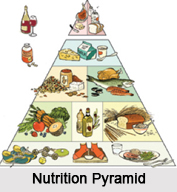 Diet Therapy is a practical application of nutrition as a preventative or corrective treatment of disease. This usually involves the modification of an existing dietary lifestyle to promote optimum health. However, in some cases, an alternative dietary lifestyle plan may be developed for the purpose of eliminating certain foods in order to reclaim health.
Diet Therapy is a practical application of nutrition as a preventative or corrective treatment of disease. This usually involves the modification of an existing dietary lifestyle to promote optimum health. However, in some cases, an alternative dietary lifestyle plan may be developed for the purpose of eliminating certain foods in order to reclaim health.Purpose of Diet Therapy
Diet is a very important part of living and a nutritious diet helps keeping new diseases from affecting the body. Treatments involve including foods that improve specific health conditions, while avoiding foods that may make the condition worse. Practitioners of medicine even claim that a healthy diet plan can help curing diseases and also assist in prevention of the disease. This is the main function of a diet therapy.
Be it with a well-structured diet plan for healthy living, or be it with a plan of diet for different diseases, diet therapy has carved a niche for itself as a noteworthy alternative therapy.
Types of Diet Therapy
 A number of conditions are treated in part with therapeutic diets. Some health conditions require temporary therapeutic diets. Other times a therapeutic diet may become a permanent change necessary to keep the person healthy. Dieticians normally formulate therapeutic diets. The diet may change over time based on the person’s response and improvement in health status.
A number of conditions are treated in part with therapeutic diets. Some health conditions require temporary therapeutic diets. Other times a therapeutic diet may become a permanent change necessary to keep the person healthy. Dieticians normally formulate therapeutic diets. The diet may change over time based on the person’s response and improvement in health status.A gluten-free diet is an example of a dietary change that one must maintain to remain healthy. People with gluten intolerance must avoid gluten-containing foods to prevent damage to their intestines. The diabetic diet is a very common therapeutic diet involving limiting high-sugar food to help control blood sugar levels. Other therapeutic diets limit nutrients such as salt, to control blood pressure, or saturated fat, to manage cholesterol.
For more, visit the link below: